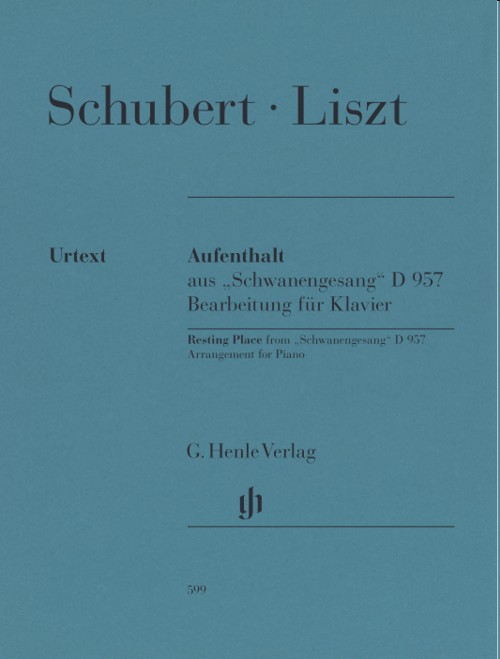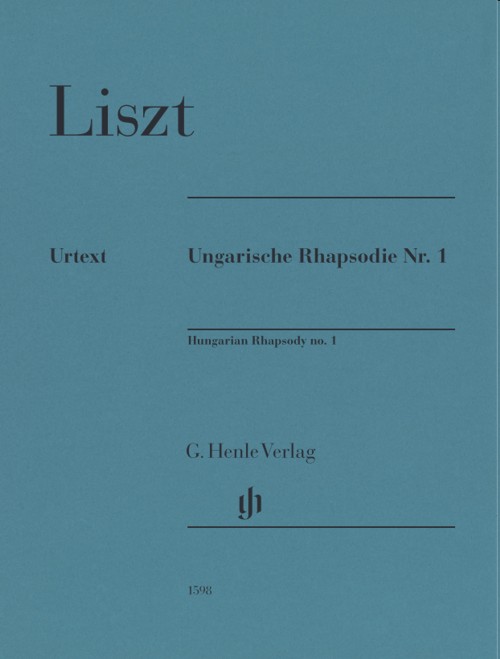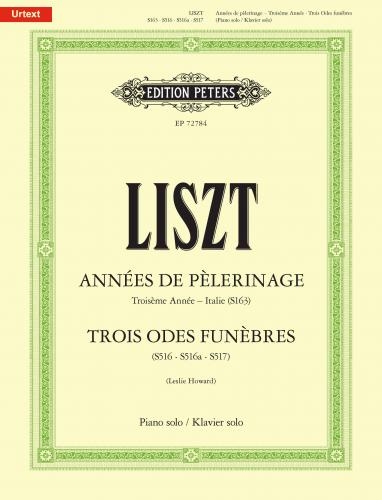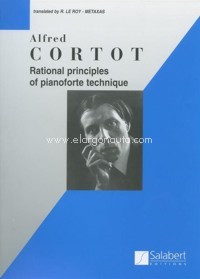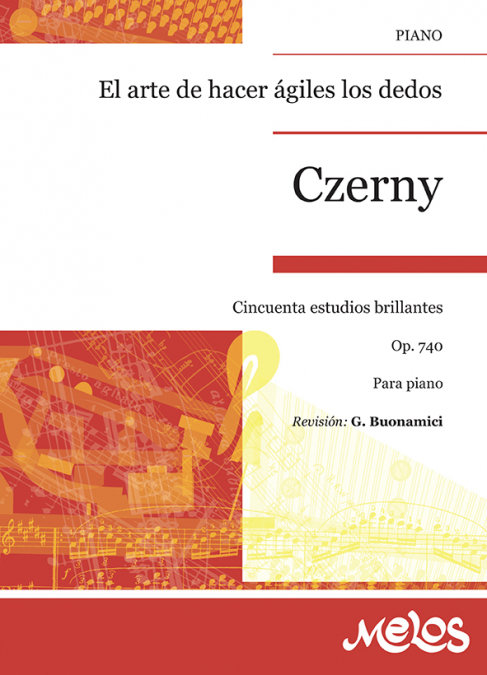
New Edition of the Complete Works: Free Arrangements and Technical Exercises: Complete Edition, Piano
Liszt, Franz
Editio Musica Budapest. 2021Ficha técnica
- EAN: 9790080305362
- ISBN: 979-0-080-30536-2
- Editorial: Editio Musica Budapest
- Fecha de edición: 2021
- Idioma: Inglés alemán húngaro
- Nº páginas: 240
No disponible temporalmente
Disponibilidad sujeta a la información del editorPVP. 128,80€
Añadir a la Lista de deseos
Supplementary Volume 16 of the New Liszt Edition contains free arrangements and technical exercises. In the first section can be found early versions of three arrangements. The first consists of the first and intermediary versions of a transcription of Die Rose, a song Schubert composed to a poem by Schlegel. The arrangement of the second movement of Berlioz's Harold Symphony also draws on literary inspiration: Lord Byron's (1788-1824) narrative poem Childe Harold's Pilgrimage (1812-18) was a literary experience Liszt shared with Berlioz. The fantasy on themes from Bellini's opera La sonnambula [The Sleepwalker] (here the first version of 1842, and the second version dating from the following decade are given) is important in music history because it was while he worked on this (and other operatic fantasies) that Liszt developed a new concept of the form, which took shape in more complex and more concentrated fantasies than before. Particularly interesting material can be found in the appendix. In addition to sketches and drafts for arrangements of Spanish themes, there are three sources published here for the first time, which shed light on technical aspects of Liszt's piano teaching. These are three sets of exercises: the first written by Liszt himself for Valérie Boissier in 1832; the second a copy in an unidentified hand from the same period or slightly later; and finally the third which was noted down in 1871 by Henri Maréchal in Rome based on the composer's dictation. This latest volume of the New Liszt Edition includes a detailed preface in German, English, and Hungarian containing new research findings, together with five manuscript facsimiles and critical notes. Simultaneously with the cloth-bound Complete Edition, a practical paperback version has been published, the contents of which are identical to those of the hardcover edition, minus the inclusion of critical notes.
CONTENIDO:
La rose - Poésie de Friedrich Schlegel, musique de Franz Schubert, arrangée pour le piano-forte, 1st version and intermediate version
Marche des pelerins de la symphonie Harold en Italie de Hector Berlioz, transcrite pour piano seul - 1st version
Fantaisie sur des motifs favoris de l'opéra La sonnambula de Vincenzo Bellini - 1st and 2nd versions
Fantaisie sur des motifs favoris de l'opéra La sonnambula de Vincenzo Bellini - Album leaf
Appendix - Piano Piece on Spanish Themes, Fragment
Appendix - Sketches and Drafts for an Arrangement of Spanish Themes
Appendix - Apparitions, no. 1, Album leaf
Appendix - Technical Exercises for Valérie Boissier (1832)
Appendix - Technical Exercises Attributed to Liszt (1830s)
Appendix - Exercices pour le piano / Schule des Virtuosenspiels - recorded by Henri Maréchal (1871)
Supplementary Volume 16 of the New Liszt Edition contains free arrangements and technical exercises. In the first section can be found early versions of three arrangements. The first consists of the first and intermediary versions of a transcription of Die Rose, a song Schubert composed to a poem by Schlegel. The arrangement of the second movement of Berlioz's Harold Symphony also draws on literary inspiration: Lord Byron's (1788-1824) narrative poem Childe Harold's Pilgrimage (1812-18) was a literary experience Liszt shared with Berlioz. The fantasy on themes from Bellini's opera La sonnambula [The Sleepwalker] (here the first version of 1842, and the second version dating from the following decade are given) is important in music history because it was while he worked on this (and other operatic fantasies) that Liszt developed a new concept of the form, which took shape in more complex and more concentrated fantasies than before. Particularly interesting material can be found in the appendix. In addition to sketches and drafts for arrangements of Spanish themes, there are three sources published here for the first time, which shed light on technical aspects of Liszt's piano teaching. These are three sets of exercises: the first written by Liszt himself for Valérie Boissier in 1832; the second a copy in an unidentified hand from the same period or slightly later; and finally the third which was noted down in 1871 by Henri Maréchal in Rome based on the composer's dictation. This latest volume of the New Liszt Edition includes a detailed preface in German, English, and Hungarian containing new research findings, together with five manuscript facsimiles and critical notes. Simultaneously with the cloth-bound Complete Edition, a practical paperback version has been published, the contents of which are identical to those of the hardcover edition, minus the inclusion of critical notes.
CONTENIDO:
La rose - Poésie de Friedrich Schlegel, musique de Franz Schubert, arrangée pour le piano-forte, 1st version and intermediate version
Marche des pelerins de la symphonie Harold en Italie de Hector Berlioz, transcrite pour piano seul - 1st version
Fantaisie sur des motifs favoris de l'opéra La sonnambula de Vincenzo Bellini - 1st and 2nd versions
Fantaisie sur des motifs favoris de l'opéra La sonnambula de Vincenzo Bellini - Album leaf
Appendix - Piano Piece on Spanish Themes, Fragment
Appendix - Sketches and Drafts for an Arrangement of Spanish Themes
Appendix - Apparitions, no. 1, Album leaf
Appendix - Technical Exercises for Valérie Boissier (1832)
Appendix - Technical Exercises Attributed to Liszt (1830s)
Appendix - Exercices pour le piano / Schule des Virtuosenspiels - recorded by Henri Maréchal (1871)


